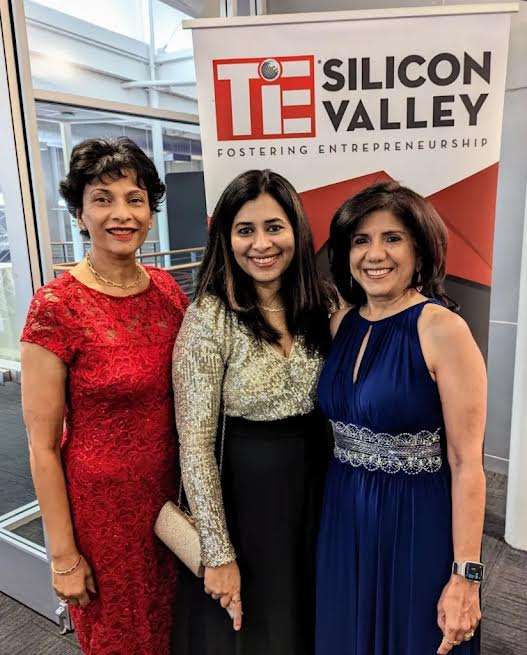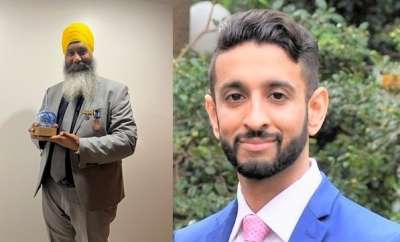Founded in 1992, TiE fwas born at the cusp of the dotcom revolution. Kanwal Rekhi, one of the founders along with others like him, had struggled to get funding for their first venture. They were determined to mentor Indian entrepreneurs and help them achieve the kind of success that Rekhi, Suhas Patil, and Kailash Joshi had achieved against all odds
TiE has stood the test of time. It celebrated its 30th anniversary party a few days ago at the Computer History Museum, Mountain View California.
Founded in 1992, TiE fwas born at the cusp of the dotcom revolution. Kanwal Rekhi, one of the founders along with others like him, had struggled to get funding for their first venture. They were determined to mentor Indian entrepreneurs and help them achieve the kind of success that Rekhi, Suhas Patil, and Kailash Joshi had achieved against all odds.

“It was great to see most of the founders and early charter members besides the young new crowd. It was gratifying to see all 10 of the Presidents of TiE SV on stage,” said Kanwal Rekhi, co-founder of TiE, the largest global network of Indian entrepreneurs.
“We must now lay the foundation for the next 30 years,” said Anita Manwani, TiE SV President elect for 2023, whose two-year term as president starts in January, 2023. She has served as President-elect for the past year.
Manwani addressed the Charter Members present at the event, and promised to focus on re-energizing the brand and delivering value to the entire entrepreneurial ecosystem.
“I look at our community here as having four constituents: our entrepreneurs, our investors, corporate executives who come here to spark innovation in the innovators amongst us and our corporate sponsors without whom we would not be able to host events like this.” TiE must bring value to each member of the community she said.
Between 1980 and 1998, only 7 percent of Silicon Valley’s high-tech companies were started by Indian immigrants, according to a 1999 University of California, Berkeley Report. By 2012, one third of all SV high tech companies founded by immigrants had Indian American founders
Charter Member candidates, as prescribed in the TiE bylaws, must be nominated by a current Charter Member. A membership to this exclusive club brings with it an invitation to attend Charter Member-exclusive events such as that night’s celebration.
TiE plans to broaden the networks and bring in fresh ideas, said Manwani, and will set up advisory committees of mentors who are outside of South Asian networks.
“We have to be reflective of the Silicon Valley demographics that we operate in,” she said, because diversity means including more than just women or South Asians. “The mentors that I have had, without whom I would not be standing here, have not all been South Asian. This community has given us a lot:. This is our time to get back to the larger entrepreneurial community. We must plan for the next generation.”
“TiE has been a transformational organization. Indian Americans have become the largest ethnic group that has taken to entrepreneurship enmasse,” said Rekhi.
Between 1980 and 1998, only 7 percent of Silicon Valley’s high-tech companies were started by Indian immigrants, according to a 1999 University of California, Berkeley Report. By 2012, one third of all SV high tech companies founded by immigrants had Indian American founders.
Vivek Wadhwa in his report Then and Now: America’s New Immigrant Entrepreneurs, reported that Indians start more companies than any other immigrant group in California (26%), Massachusetts (28%), Texas (17%), Florida (17%), New York (27%), and New Jersey (57%). Indians also lead all immigrant groups in the number of companies founded in the following industries: biosciences (35%), computers/communications (28%), innovation/manufacturing-related services (29%), semiconductors (32%), software 33%), environmental (39%), and defense/aerospace (29).
*********************************************************************
Readers
These are extraordinary times. All of us have to rely on high-impact, trustworthy journalism. And this is especially true of the Indian Diaspora. Members of the Indian community overseas cannot be fed with inaccurate news.
Pravasi Samwad is a venture that has no shareholders. It is the result of an impassioned initiative of a handful of Indian journalists spread around the world. We have taken the small step forward with the pledge to provide news with accuracy, free from political and commercial influence. Our aim is to keep you, our readers, informed about developments at ‘home’ and across the world that affect you.
Please help us to keep our journalism independent and free.
In these difficult times, to run a news website requires finances. While every contribution, big or small, will makes a difference, we request our readers to put us in touch with advertisers worldwide. It will be a great help.
For more information: pravasisamwad00@gmail.com








